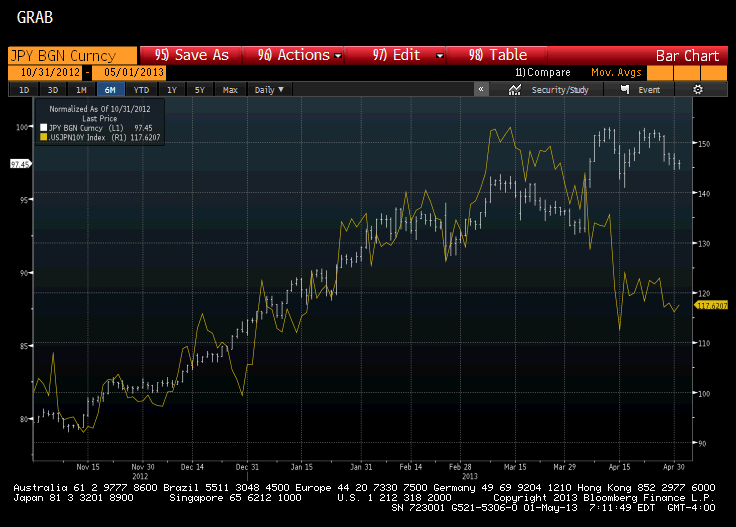By Marc Chandler, Global Head of Currency Strategy, Brown Brothers Harriman
This Great Graphic, we created on Bloomberg, shows the how well the US-Japanese 10-year interest rate differential (yellow line) tracked the dollar’s advance against the yen (bar chart) since the Japanese election was announced in mid-Nov last year.
A divergence opened in April as the US premium fell, but the dollar remained firm. The situation may not clarify itself until after Japan’s Golden Week holiday end early next week.
With poor US economic data, softening inflation, and the Fed still committed to purchases $85 bln of MBS and Treasuries every month, a significant backing up of US interest rates seems unlikely. The 10-year yield may stay below 1.80%, the April high water mark. Evidence that the US economy is slowing, with the risk of a sub-2% pace in Q2, while the core PCE deflator has fallen toward 1% (or lower) and the US 10-year yield can fall toward last year’s low near 1.40%.
For their part, the 10-year JGB yield has steadied in narrow ranges around 60 bp. This is a few basis points above levels that were prevailing when BOJ’s Kuroda unveiled the qualitative and quantitative easing strategy.
After the Golden Week holidays, Japanese institutional investors may begin deploying this year’s investment strategy. However, the idea that the risk-averse investors will be aggressive buyers of US Treasuries and European bonds at or near record lows, with questionable credit quality, is a stretch. While investment outflows may disappoint, inflows may slow as the foreign appetite for Japanese equities wanes after a huge run. Through mid-April, foreign investors have bought nearly $65 bln of Japanese shares.
